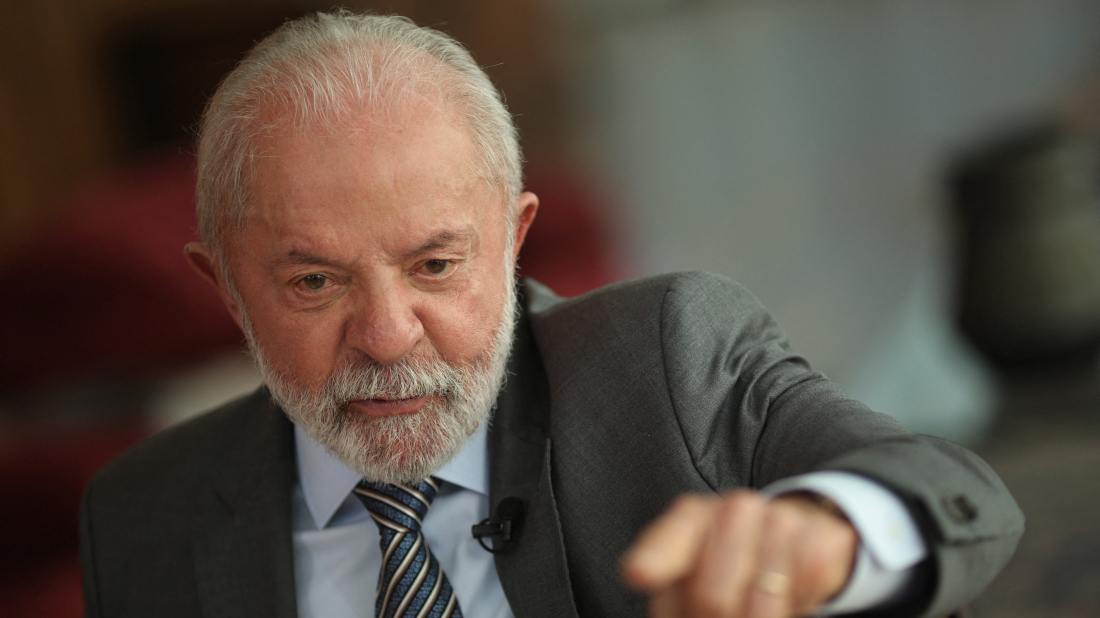AnewZ Morning Brief -21 February, 2026
Start your day informed with AnewZ Morning Brief. Here are the top news stories for the 21st of February, covering the latest developments you need to...

As U.S. tariffs on Brazilian goods jumped to 50% on Wednesday, Brazil's President Luiz Inacio Lula da Silva told Reuters that he saw no room for direct talks now with U.S. President Donald Trump that would likely be a "humiliation."
Brazil is not about to announce reciprocal tariffs, he said. Nor will his government give up on cabinet-level talks. But Lula himself is in no rush to ring the White House.
"The day my intuition says Trump is ready to talk, I won't hesitate to call him," Lula said in an interview from his presidential residence in Brasilia.
"But today my intuition says he doesn't want to talk. And I won't humiliate myself."
In interviews with Reuters, Lula outlined plans to engage fellow BRICS leaders—including India’s Narendra Modi and China’s Xi Jinping—to coordinate a unified response to the escalating U.S. trade measures.
Lula criticised Trump’s approach as an attempt to dismantle the established multilateral system of collective agreements, replacing it with unilateral, one-on-one negotiations that disadvantage smaller countries.
“What bargaining power does a small Latin American country have against the United States? None,” he remarked.
Under Lula’s leadership as the current BRICS chair, Brazil aims to convene discussions among member states—including Russia and South Africa—to assess the implications of U.S. tariffs and formulate a collective strategy.
Highlighting the group’s significance, he noted that BRICS countries account for ten members of the G20, the forum of the world’s largest economies.
The tariffs have already impacted BRICS members significantly. Last month, the U.S. imposed a 50% tariff on many Brazilian exports amid political disputes linked to former Brazilian President Jair Bolsonaro. Trump has also threatened additional tariffs on Indian imports due to the country’s reliance on Russian oil, alongside existing steep tariffs on Chinese and South African goods.
National Council for New Mineral Materials
Separately, Lula has announced a new national policy to treat strategic minerals as a matter of “national sovereignty,” signalling Brazil’s intent to shift away from exporting raw minerals towards adding value domestically. He unveiled plans to establish a National Council for New Mineral Materials, which will oversee resources such as rare earths and report directly to the presidency. This move aims to prevent Brazil from falling into a resource vacuum while other nations benefit from mineral wealth, and to encourage investment by streamlining engagement with businesses.
Acknowledging Brazil’s technological challenges, Lula stressed the importance of international partnerships with countries such as the U.S., China, and Germany to bolster the nation’s role in the global energy transition. The new policy also includes comprehensive mapping of Brazil’s mineral resources, laying the groundwork for the country to become a global leader in sustainable energy development.
Lula’s dual approach—defending multilateralism on the international stage while advancing strategic economic sovereignty at home—reflects Brazil’s ambition to assert greater influence amid shifting geopolitical and economic landscapes.
Quentin Griffiths, co-founder of online fashion retailer ASOS, has died in Pattaya, Thailand, after falling from the 17th floor of a condominium on 9 February, Thai police confirmed.
The Board of Peace will be "looking over the United Nations," said U.S. President Donald Trump at the inaugural Washington meeting, where representatives from over 20 countries gathered to unveil plans for Gaza’s reconstruction and coordinate international support.
At least four people have died and 17 others were injured after a liquid gas truck overturned and exploded in Santiago, Chile’s capital, authorities confirmed on Thursday. Police said the driver was among those killed.
Russian President Vladimir Putin met Cuban Foreign Minister Bruno Rodriguez in the Kremlin on Wednesday, telling him that new restrictions imposed on the communist-run island were unacceptable.
Kazakhstan has entered the world’s top 50 economies by GDP in 2026, ranking 50th with a projected nominal output of $320 billion. The result reflects sustained growth, structural reforms and the country’s rising role as a regional economic hub.
Start your day informed with AnewZ Morning Brief. Here are the top news stories for the 21st of February, covering the latest developments you need to know.
U.S. President Donald Trump will travel to China from 31 March to 2 April, the White House has confirmed, for talks with Chinese President Xi Jinping as a U.S. Supreme Court ruling reshapes his tariff policy.
The United Nations World Food Programme (WFP) said on Friday that its life‑saving food and nutrition assistance in Somalia could end by April without urgent funding, leaving millions at risk of severe hunger.
Quentin Griffiths, co-founder of online fashion retailer ASOS, has died in Pattaya, Thailand, after falling from the 17th floor of a condominium on 9 February, Thai police confirmed.
UK politicians have renewed calls for Andrew Mountbatten-Windsor, formerly Prince Andrew, to be removed from the line of succession following his arrest on suspicion of misconduct in public office and revelations over his links to convicted U.S. sex offender Jeffrey Epstein.
You can download the AnewZ application from Play Store and the App Store.

What is your opinion on this topic?
Leave the first comment